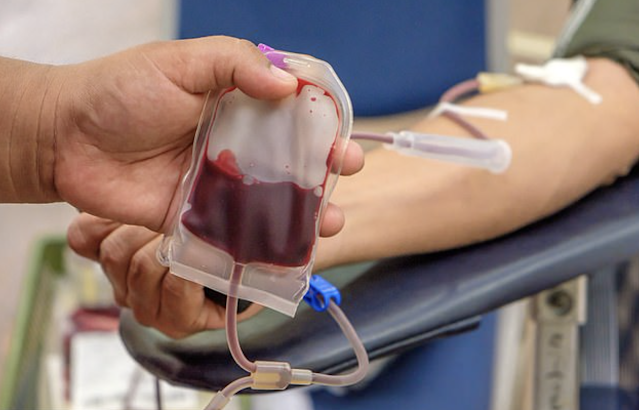Two new LGBT cases communicated by the Court against France and Moldova
The European Court of Human Rights has communicated the following two cases concerning discrimination on the grounds of sexual orientation in respect of blood donation, and hate speech against LGBT persons.
Mr Drelon has made two applications to the Court.The first application, which relies on Articles 8 and 14 of the Convention, concerns the registration of Mr Drelon as a homosexual by the French Blood Establishment ("EFS"), which he regards as, among other things, a disproportionate measure.
The second application, which also relies on Articles 8 and 14 of the Convention, concerns the restriction on a male who has had sex with another male giving blood (previously a man who had sex with another man could not give blood for twelve months and, since 2019, this period is now four months). Mr Drelon also reiterates his complaint relating to his sexual orientation being listed in the EFS files.
The Court has asked the Parties the following questions:
1. Was there an infringement of Mr Drelon's right to respect for his private life, within the meaning of Article 8 § 1 of the Convention, by reason of the collection and storage by the EFS of personal data relating to sexual orientation? If so, was the interference with the exercise of this right prescribed by law and necessary within the meaning of Article 8 § 2?
1. Was there an infringement of Mr Drelon's right to respect for his private life, within the meaning of Article 8 § 1 of the Convention, by reason of the collection and storage by the EFS of personal data relating to sexual orientation? If so, was the interference with the exercise of this right prescribed by law and necessary within the meaning of Article 8 § 2?
2. Was there an infringement of Mr Drelon's right to respect for his private life, within the meaning of Article 8 § 1 of the Convention, by reason of the temporary restrictions to donating blood provided for by domestic law for a man who has had sex with another man? If so, was the interference with the exercise of this right prescribed by law and necessary within the meaning of Article 8 § 2?
3. Has Mr Drelon been the victim of discrimination in the exercise of his rights guaranteed by the Convention on the basis of his sexual orientation, which would be contrary to Article 14 taken in conjunction with Article 8 of the Convention?
[See also Tosto v Italy, which the Court decided to strike out.]
The application concerns the authorities’ positive obligations in the context of hate speech by third parties.
A news portal published various news items and invited users to comment in specially reserved comments sections. One such news item about the LGBT community’s plans for a parade was followed by several statements made under pseudonyms and calling for violence and discrimination against LGBT persons in Moldova.
GENDERDOC-M, representing a number of LGBT persons, complained in the domestic courts against the news portal, but the courts rejected the complaint since the law did not provide for responsibility for statements made by third parties.
The case raises issues under Articles 8, 13 and 14 of the Convention.
The Court has asked the Parties the following questions:
1. Do the facts of the case disclose a violation of Article 8 taken alone or in conjunction with Articles 13 and/or 14 of the Convention?
2. In particular, did the authorities comply with their positive obligations of preventing dissemination of statements calling for violence and discrimination against LGBT persons?
The Court has asked the Parties the following questions:
1. Do the facts of the case disclose a violation of Article 8 taken alone or in conjunction with Articles 13 and/or 14 of the Convention?
2. In particular, did the authorities comply with their positive obligations of preventing dissemination of statements calling for violence and discrimination against LGBT persons?
[See the previous judgment of the Court in respect of a complaint brought by GENDERDOC-M.]

Comments
Post a Comment